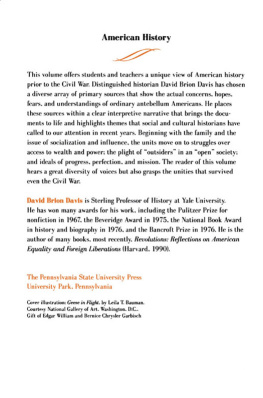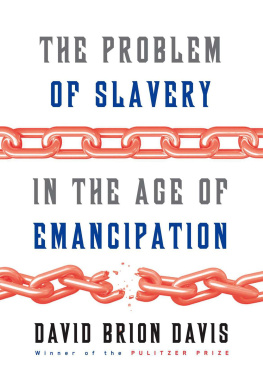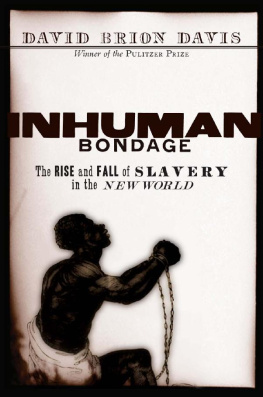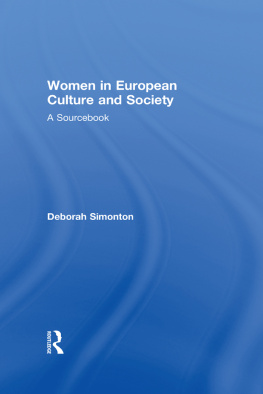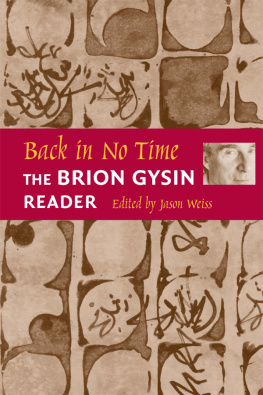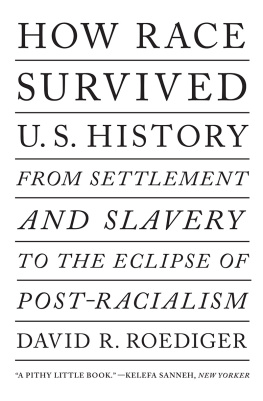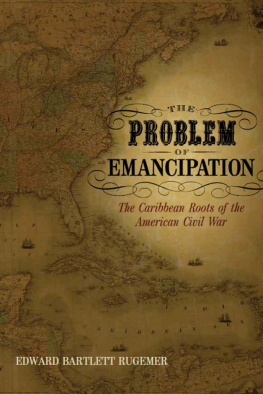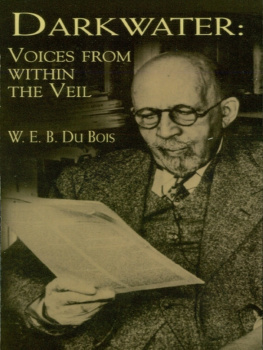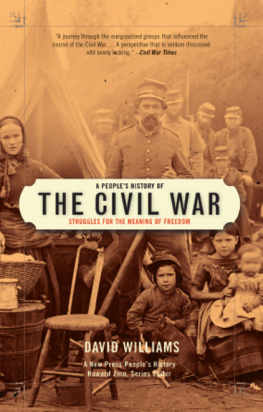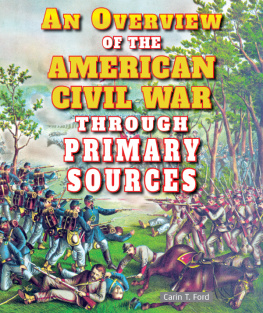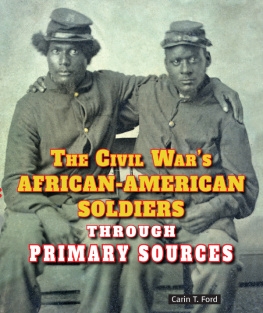Heman Humphrey (1840)
From the Old Testament prophets and ancient Greek philosophers to Sigmund Freud, social theorists have emphasized the primal (and often unconscious) connections between family authority and tribal or national government. Confronted by the political and social upheavals of the 1830s (the so-called Age of Jackson, for which Jackson was only one symbol), conservatives like Heman Humphrey could draw on this tradition and portray the patriarchal family as historys stabilizing remnant and hope. Yet in making this argument, Humphrey concedes much to the genial, democratic pressures which had aggravated the problems of parenthood. And ironically, from one point of view, Humphreys arguments for family autonomy can be interpreted as a radical defiance of the encroachments of the state. Humphrey (17791861) was a native New Englander who worked as a school teacher and farmhand before entering Yale College at the age of twenty-five. A pioneering temperance preacher, he later became president of Amherst College, two years after its founding, and remained in that influential position for twenty-two years.

Every family is a little state, or empire within itself, bound together by the most endearing attractions, and governed by its patriarchal head, with whose prerogative no power on earth has a right to interfere. Nations may change their forms of government at pleasure, and may enjoy a high degree of prosperity under different constitutions; and perhaps the time will never come, when any one form will be adapted to the circumstances of all mankind. But in the family organization there is but one model, for all times and all places. It is just the same now, as it was in the beginning, and it is impossible to alter it, without marring its beauty, and directly contravening the wisdom and benevolence of the Creator. It is at once the simplest, the safest and the most efficient organization that can be conceived of. Like everything else, it may be perverted to bad purposes; but it is a divine model, and must not be altered.
Every father is the constituted head and ruler of his household. God has made him the supreme earthly legislator over his children, accountable, of course, to Himself, for the manner in which he executes his trust; but amenable to no other power, except in the most extreme cases of neglect, or abuse. The will of the parent is the law to which the child is bound in all cases to submit, unless it plainly contravenes the law of God. Children are brought into existence and placed in families, not to follow their own wayward inclinations, but to look up to their parents for guidance; not to teach, but to be taught; not to govern but to be governed.

And as no power on earth may forcibly take the reins out of a parents hands, neither may he abandon his post, or refuse to act as the viceregent of God in his own house. When a father finds himself surrounded by a rising family, it is too late for him to decide whether or not he will assume the responsibility of supporting and educating his children. That question is already settled.... These are duties which every head of a family must perform. If he neglect them, it is at his peril.... He is not indeed precluded from availing himself of the assistance of others, by sending his children abroad for a part of their education, when he thinks it will be for their advantage; but let him not forget that he is accountable to God for the judicious exercise of this discretion. The authority which he cannot exercise over his children when they are away from home, he must delegate to those who receive them under their care; and in no case may he place them where they will be left to themselves, and exposed without counsel or restraint, to bad influences.

Although, as I have already remarked, the state has no right to interfere with the domestic arrangements of families, except in extreme cases, it is I do not believe it can.... It has been said a thousand times, that the practicability of maintaining a highly republican form of government has been tried and is settled in the United States, however it may have failed everywhere else. I wish it were so: but I am afraid the question is settled, so far only as we have gone. What the future may disclose, who can certainly tell? It is yet a grand desideratum, whether we have religion and virtue and intelligence enough to sustain our blessed institutions. The danger is, that our liberties will degenerate into licentiousness, and that the growing laxity of family government in this country will hasten on the fearful crisis. There is, if I am not deceived, a reaction in our unparalleled political freedom, upon our domestic relations. It is more difficult than it was, half, or even a quarter of a century ago, for parents to command their household after them. Our children hear so much about liberty and equality, and are so often told how glorious it is to be born free and equal. that it is hard work to make them understand for what good reason their liberties are abridged in the family; and I have no doubt this accounts, in multitudes of instances, for the reluctance with which they submit to parental authority. The boy wants to be his own man, long before his wisdom teeth are cut; and the danger lies in conceding the point to him under the notion that our fathers were quite too rigid and that a more indulgent domestic policy, corresponding with the spirit of the age, is better. This may be the way to make rulers enough for a hundred republics; but not to make a single good subject. I repeat, therefore, that if it is important to secure a prompt obedience to the wholesome laws of the state, then is family government indispensably necessary, and the father who takes no care to control his own sons, is not himself a patriot, if he is a good citizen.
Moreover, without family government there will be very little self-government in any community. If you do not restrain the waywardness of your child, in its early developments, and thus assist him to get the mastery of it while yet the conquest is comparatively easy, it will be in vain for you to expect him ever to gain that self-control which is so essential to his happiness and safety. Nothing is better settled by the experience of all ages, than that the will grows stubbornthat evil passions become impetuous by indulgence; and that indulged they will be, by the child, if they are not held in check by parental authority. In this view, a greater misfortune can hardly befall a young person, than to be left to himself. The consequence is, that before reason and conscience can assert their supremacy, bad habits are formed, and his depraved inclinations have time to ripen into such maturity, that to bring them into subjection is infinitely more difficult than if the work had been commenced in the nursery.

It is thought by some, that the government of children must be very easy, if not even a delightful task. I do not recollect, however, that I ever heard this sentiment expressed by a parent who had been placed in circumstances to make the trial, and who had succeeded in any tolerable degree. As a general rule, persons know how to manage families much better before they have them, than afterwards. Those who are most astonished at the failure of their friends in this important matter, and see no difficulty at all in holding the reins, have no children to govern. The bachelor who boards in his brothers family, or goes to spend a few weeks with a married sister, understands the thing perfectly, and can discourse most eloquently upon family government, by the hour together. He has it all at his fingers ends, from A to Z, and knows exactly what to do from sunrise till bed-time. Oh how he wishes he could have the management of these lawless little urchins for a month. He would stop their crying and romping, or he would quit the premises. How parents can have so little tact, and be so indulgent, is entirely beyond his comprehension. But it is often exceedingly amusing to see how the tables are turned when he comes to have a family of his own. Poor man! the children spoil his beautiful theories a great deal faster than he ever made them. What the matter is, he cannot tell; but it is infinitely more difficult to govern children than it used to be.

